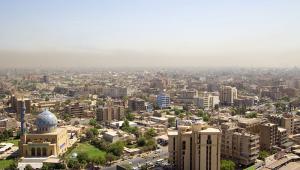By Nick Mann | 12 November 2012
Algeria needs to rein in its public spending and reduce its reliance on the oil industry for tax revenues, the International Monetary Fund said today.
In its annual review of the North African country, the IMF highlighted the economy’s dependence on oil production for long-term fiscal sustainability. Civil service pay increases meant Algeria’s budget deficit was forecast to reach 3.7% of its gross domestic product this year, further increasing its vulnerability to changes in oil prices.
The IMF welcomed the government’s plans to reduce its spending next year. This prudent fiscal policy ‘should be pursued over the medium term through the containment of current spending and the development of non-hydrocarbon revenues’, it said.
‘Similarly, the efforts launched by the authorities to modernise public financial management, supported by a medium-term budget framework, should help strengthen the efficiency of public expenditure management,’ it added.
Algeria’s economy is expected to record a ‘solid’ 2.5% growth rate this year, aided by an increased contribution from the ‘buoyant’ non-oil sector, which has been bolstered by public spending. The IMF then expects growth of 3.4%, underpinned by domestic demand and a recovery in the oil sector.
However, the economy could do better, the IMF said. With high rates of youth and female unemployment – at 21.5% and 17% respectively – Algeria needed to ‘step up’ its below-potential growth rate.
‘This can be achieved by maintaining public investment and making it more efficient, continuing a foreign exchange policy that fosters external competitiveness, and undertaking structural reforms to promote private-sector-led growth and increase total factor productivity,’ the IMF said.
‘A strategy is therefore needed to improve the business climate, alleviate the constraints on foreign investment, promote greater international trade integration, and develop the financial sector.’












